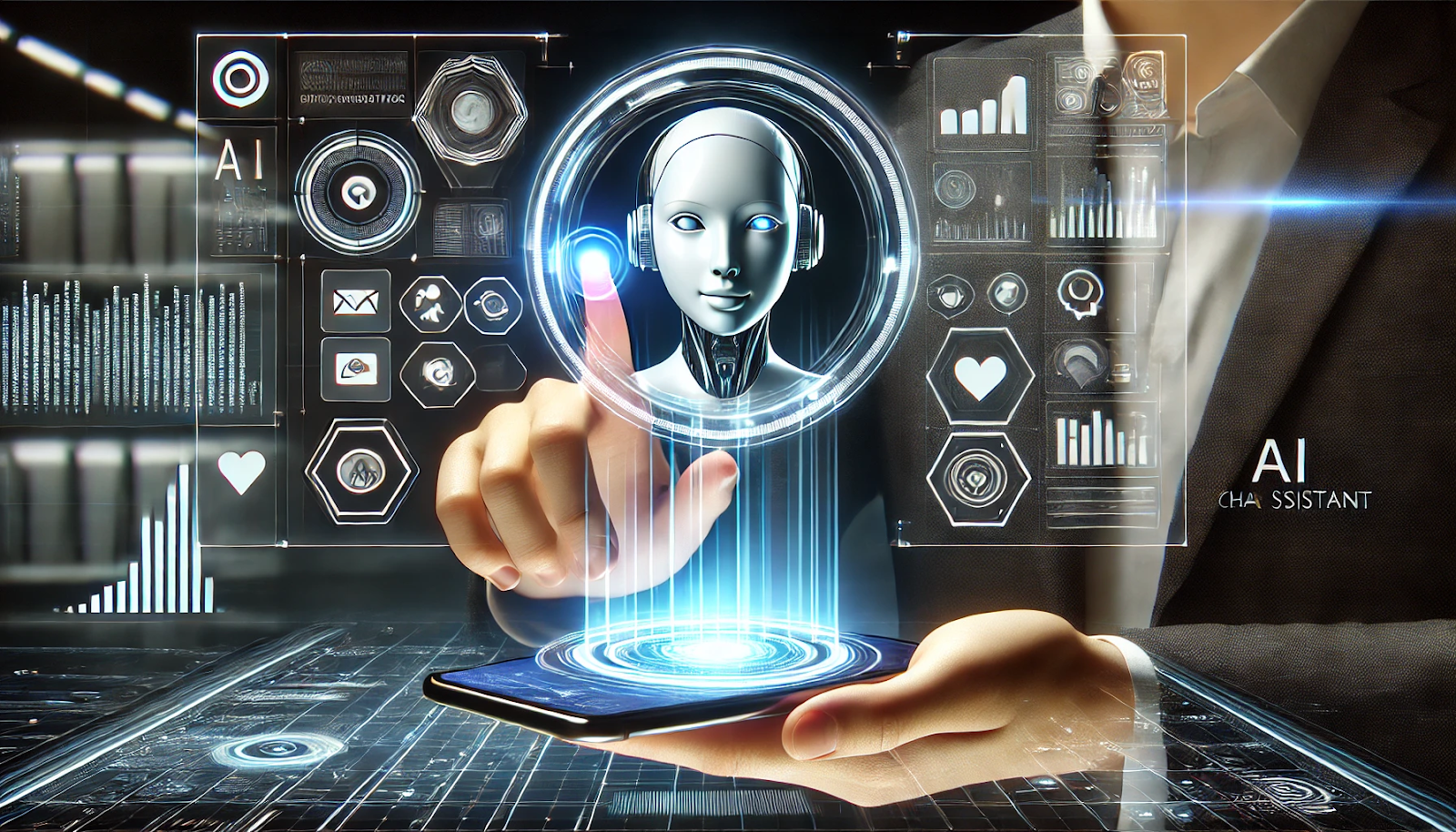The Rise of AI Chat Assistants
Artificial intelligence (AI) has revolutionized how we interact with technology. From answering questions to automating tasks, AI chat assistants have become essential tools for both individuals and businesses. These smart assistants are designed to streamline workflows, improve customer experiences, and enhance productivity.
As AI app development advances, chat assistants are becoming more intuitive, conversational, and capable of handling complex requests. This transformation is reshaping industries and redefining the way we engage with digital services. In this blog, we will explore the evolution of AI chat assistants, their benefits, and how they are changing the digital landscape.
The Evolution of AI Chat Assistants
AI chat assistants have come a long way from simple rule-based chatbots to advanced conversational agents powered by machine learning and natural language processing (NLP). Early chatbots operated on predefined scripts, responding only to specific inputs. While useful, they lacked the ability to engage in meaningful conversations.
With advancements in AI app development, modern AI chat assistants leverage deep learning models, enabling them to understand context, sentiment, and intent. These AI-powered solutions can now generate human-like responses, making interactions more natural and efficient.
How AI Chat Assistants Work
At the core of every AI chat assistant is a combination of machine learning, NLP, and data analytics. These technologies allow AI assistants to process text, recognize patterns, and generate appropriate responses.
When a user sends a message, the AI assistant analyzes the input, determines intent, and retrieves the most relevant response. With continuous learning, these systems improve over time, adapting to user preferences and refining their accuracy.
Benefits of AI Chat Assistants
1. Enhanced Customer Support
One of the primary applications of AI chat assistants is customer support. Businesses use these assistants to handle common inquiries, reducing wait times and improving customer satisfaction. AI-powered chatbots provide instant responses, ensuring users receive timely support.
Moreover, AI chat assistants operate 24/7, eliminating the limitations of traditional customer service hours. This not only enhances the user experience but also reduces operational costs for businesses.
2. Increased Productivity
AI chat assistants automate repetitive tasks, allowing employees to focus on higher-value work. Whether it’s scheduling meetings, managing emails, or providing data insights, AI-powered assistants streamline daily operations.
Incorporating AI into business workflows improves efficiency, minimizes human errors, and optimizes task management. Companies leveraging AI assistants see a significant boost in productivity and operational effectiveness.
3. Personalized User Experience
AI chat assistants learn from user interactions, enabling them to provide tailored recommendations and personalized experiences. By analyzing user behavior, these assistants can suggest relevant products, content, or services, enhancing engagement and conversion rates.
Personalization is particularly valuable in e-commerce, where AI-powered chatbots can guide users toward the right products based on preferences and browsing history. This level of customization fosters stronger relationships between businesses and consumers.
AI Chat Assistants in Different Industries
1. Healthcare
AI chat assistants are transforming healthcare by assisting patients with appointment scheduling, medication reminders, and symptom analysis. These smart assistants improve accessibility to healthcare services and reduce administrative burdens on medical professionals.
Additionally, AI-powered assistants provide preliminary medical guidance, helping users determine whether they need to visit a doctor or seek emergency care. This improves efficiency within the healthcare system while offering immediate support to patients.
2. E-Commerce
In the e-commerce sector, AI chat assistants enhance shopping experiences by offering product recommendations, answering FAQs, and guiding customers through the purchasing process. AI-driven assistants also assist with order tracking and returns, ensuring seamless customer interactions.
By integrating AI-powered chatbots into their platforms, online retailers improve user engagement and boost sales. AI assistants play a crucial role in providing personalized shopping experiences that keep customers coming back.
3. Finance and Banking
Banks and financial institutions use AI chat assistants to assist customers with account inquiries, fraud detection, and transaction monitoring. These AI-powered solutions provide real-time support, reducing the need for human intervention in routine banking tasks.
Moreover, AI chat assistants offer financial advice, helping users manage budgets, track expenses, and set savings goals. With their ability to analyze financial data, these assistants empower users to make informed financial decisions.
The Role of AI App Development in Advancing Chat Assistants
The rapid progress in AI app development has significantly contributed to the evolution of AI chat assistants. Developers leverage cutting-edge technologies, such as machine learning frameworks, cloud computing, and big data analytics, to create more sophisticated AI-powered solutions.
As AI models continue to improve, developers focus on enhancing the conversational capabilities of chat assistants. Natural language understanding (NLU) and sentiment analysis are key areas of development, ensuring AI assistants can comprehend and respond to human emotions effectively.
Challenges and Ethical Considerations
Despite their many advantages, AI chat assistants come with challenges. Ensuring data privacy and security remains a top priority, as these systems handle sensitive user information. Developers must implement robust encryption and authentication protocols to safeguard user data.
Additionally, AI bias is a concern. AI chat assistants learn from existing data, which can sometimes include biased information. Addressing these biases through responsible AI training and continuous monitoring is crucial for creating fair and inclusive AI-powered solutions.
The Future of AI Chat Assistants
Looking ahead, AI chat assistants will continue to evolve, becoming even more intelligent and adaptive. The integration of AI with augmented reality (AR) and virtual reality (VR) will create immersive conversational experiences. Voice-enabled AI assistants will also gain popularity, allowing users to interact with technology in a more natural way.
Furthermore, AI-driven automation will expand into more industries, enhancing decision-making processes and optimizing business operations. As AI app development advances, chat assistants will play an even greater role in our daily lives, bridging the gap between humans and technology.
Conclusion
AI chat assistants have become indispensable tools in today’s digital landscape. Whether in customer support, e-commerce, healthcare, or finance, these intelligent assistants enhance efficiency, improve user experiences, and drive business growth.
With ongoing advancements in AI app development, the capabilities of chat assistants will only continue to expand. By embracing AI-powered solutions, businesses and individuals can unlock new levels of productivity, convenience, and innovation.





























